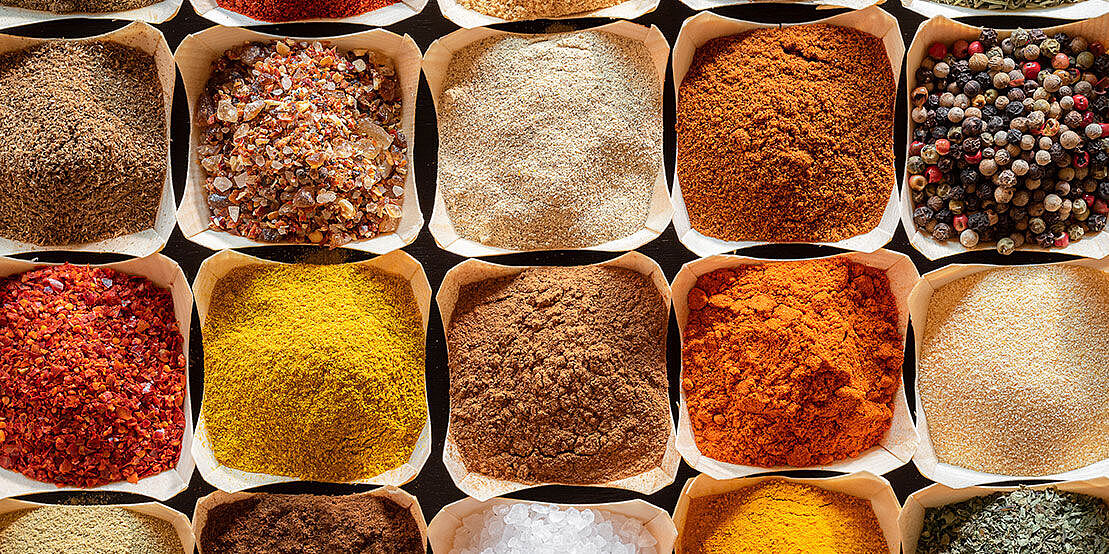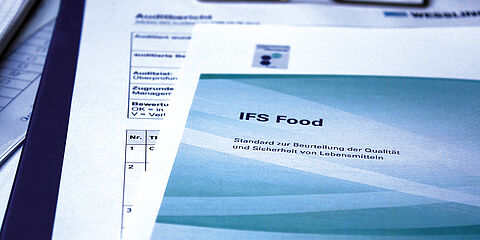Pesticide residues, mould toxins and heavy metals in spices
Importers and manufacturers of chilli powder, pepper and paprika are currently required to pay special attention to the quality of their goods, as they have been asked by the Federal Office of Consumer Protection and Food Safety (BVL) to increase their self-controls and monitoring with regard to these spices.

The BVL reported that in recent years, the legal maximum levels of mould toxins, pesticide residues or heavy metals were repeatedly exceeded in samples of chilli powder, pepper and paprika. Due to their production, processing and storage methods, these substances, which are undesirable in food, are found relatively frequently in spices, though mostly in small quantities, so that there is no direct health risk to humans.
The core competencies in food analysis at WESSLING include the analysis of residues and contaminants. Both in multi and single methods, our experts examine the respective samples, including spices, in our state-of-the-art laboratories. Our experienced experts provide comprehensive service and advise producers and suppliers on all questions regarding the analysis spectrum or professional sampling. They then expertly assess the results and check the raw materials and products for conformity with the corresponding legal requirements.
This way, importers and producers of chilli powder, pepper and paprika can be sure that they are bringing only high quality products to the market.
Pesticide residues
The examination offices of the German federal states have in the past more frequently detected excessively high residues of plant protection products in spices. For example, black pepper has been regularly monitored for years, and now, in powder form, also paprika fruit spice and chilli fruit spice. In many samples, as much as 70 percent of chilli powders, residues of several pesticides were found, and the maximum residue levels were exceeded: 26 percent for chilli powder, 13 percent for paprika powder and 7.5 percent for black pepper. When the test was repeated the following year, significantly lower values were found. A possible reason for exceeding the MRLs for dried chilli and paprika powder is that the drying process of fresh products treated with pesticides leads to a concentration of residues.
Mould toxins aflatoxin and ochratoxin
If stored in a damp and warm place, chilli powder, pepper and paprika easily form mycotoxins such as aflatoxin/flatoxins or ochratoxin A (OTA). In 2019, 41 percent of all notifications of mycotoxins in herbs and spices in the European Rapid Alert System for Food and Feed (RASFF) related to pepper and chilli powder.
Aluminium and heavy metals
Heavy metals, for example, can enter food through the air, water and soil. Their presence in spices is also undesirable and is therefore regularly checked in official laboratories. In 2017 and 2018, the analysis of paprika powder and black pepper was increased. Although the legally stipulated maximum levels were not exceeded in any case, higher levels of lead, copper, chromium and aluminium, compared to other foods, were found in paprika powder. Black pepper was also found to contain comparatively high levels of lead, aluminium, nickel, chromium and thallium.
For these reasons, new maximum levels for aflatoxin/aflatoxins and ochratoxin A and binding maximum levels for heavy metals in spices are being prepared for the EU.




